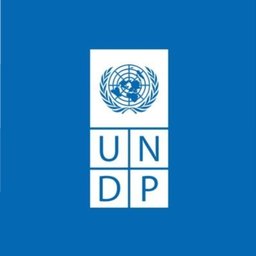Technical Consultant On Sustainable Aviation Fuels, Act Saf Assistance Project
Job Description
The Organizational Setting
The International Civil Aviation Organization (ICAO) is the United Nations (UN) designated organization in charge of ensuring continuous leadership on environmental issues relating to international civil aviation, including the reduction of Greenhouse Gas (GHG) emissions. In this regard, ICAO provides capacity-building assistance to its Member States to help them develop States Action Plans and implement measures to mitigate CO 2 emissions from international aviation. Coherent with its No Country Left Behind initiative, ICAO launched in 2013 the first ICAO Assistance Project with European Union (EU) Funding, successfully supporting 14 States in Africa and the Caribbean during its first phase and five States from the Eastern and Southern African Region, and five from the Western and Central African Region on its second phase. Seven feasibility studies were conducted in certain selected States. Information on this project and its final results, can be found here .
Building on this successful partnership with the EU, ICAO initiated in 2023 a new Assistance Project with EU funding: Capacity building for sustainable aviation fuels (SAF) eligible under the Carbon Offsetting and Reduction Scheme for International Aviation (CORSIA). The project supports the ICAO ACT-SAF global initiative launched in 2022, aiming to provide opportunities for States to develop their full potential in SAF development and deployment. This new Assistance Project has a strong geographic focus on India and the African continent where the action shall be carried out. Additional or substituting countries shall be defined with the agreement of all parties, duly justified, and respecting the strong geographical focus mentioned above.
The provision of capacity-building will be made in the form of feasibility studies or business implementation studies on the development of SAF, initially targeting ten States. The aim is to empower the governments of these States to take steps towards the production of SAF in their territory to contribute to the mitigation of CO 2 emissions from international civil aviation and achieve the objectives of the ICAO Global Framework for SAF, LCAF and other Aviation Cleaner Energies.
Working under the overall guidance and coordination of the ICAO Office of Environment, the consultant will conduct a comprehensive feasibility or business implementation study on the development and deployment of SAF in the designated supported State following the published ICAO harmonized templates. These studies may vary on size complexity and scope depending on specific circumstances of the State in the moment of launching the project and on the analysis of whether previous work was undertaken, so the definition of the study will avoid any duplications a be adapted to such context.
The incumbent will work under the overall guidance and coordination of the ICAO Assistance Project Team, under the direct supervision of the ICAO-EU Project Coordinator. The Air Transport Bureau (ATB) Environment (ENV) Branch will be responsible for overseeing this activity and ensuring that the programme and implementation activities meet the various UN regulations and the fiduciary standards of the EU.
Major duties and Responsibilities
The Consultant will report to the Project's Technical Coordinator and to Office of Environment and is expected to submit weekly reports in English outlining the work undertaken and updating the progress of the feasibility or business implementation study.
In accordance with the guidelines under the ICAO Assistance Project, and in line with existing ICAO SARPs, policies and guidance in the field of aviation and environment, the Consultant will work in close coordination with the Focal Points designated by the supported State, its national authorities and key stakeholders, to carry out the following activities related to the development of the feasibility study:
Liaise with the Project Coordinator, the Local project Consultant (where applicable) and the State's focal point to review the key objectives, scope, timeline and priorities of the study, which will be provided to the consultant at the start of the contract.
Conduct a short pre-assessment (waypoint) and present results in the form of a slide deck to determine whether there is sufficient potential and information to undertake a full study.
Develop a work plan adjusted according to the specific circumstances of the State in the moment of launching the project and on the analysis of whether previous work was undertaken, that includes a work breakdown structure (WBS), deliverables, milestones, schedule, risk management plan and an efficient monitoring strategy to conduct the study, considering previous SAF feasibility studies conducted in the State and any pre-existing literature relevant to State.
Identify and liaise with relevant national and regional industry stakeholders with potential capacity to participate in the study.
Participate in project meetings, workshops and support the delivery of capacity-building activities during the duration of the project, including through an in-country kick-off workshop and training.
Assess potential synergies with neighboring States through analysis of SAF or other renewable energy studies conducted in these States and identify potential for future collaboration for the development of SAF.
Building on previous work, identify any developments in the national conditions, legislations, existing structures, relevant aviation, energy and other stakeholders, roles of government and industry, research, investment and best practices, and ongoing and implemented actions in the field of SAF.
Conduct a comprehensive feasibility or business implementation study (as per the specific scope defined in the project's contract) on the development and deployment of SAF in the designated Supported State and develop an implementation roadmap, in close cooperation with the State which can include (but is not limited to):
+ Identifying the potential feedstocks, production potential, supply chain, and refining technologies, as well as their technical and regulatory constraints to assess the potential to develop SAF supply capacity in the State. Priority should be given to examine the feasibility of SAF production other than food and feed-crop based in light of CORSIA sustainability criteria.
+ Examine the national conditions, legislation, existing structures, relevant aviation, energy and other stakeholders, roles of government and industry, research, investment and best practices, ongoing and implemented actions in the field of SAF development and deployment for aviation and support the creation of a national working group.
Analyze the potential transformation and refining technologies, as well as their technical and regulatory constraints and sustainability certification.
Undertake a SAF market study including information on potential supply and demand - according to the objective of the ICAO Global Framework for SAF, LCAF and other Aviation Cleaner Energies - identifying potential strengths and barriers and enabling feasible national policies and incentives.
+ When required for the scope of the project, identify funding and financing barriers, liaise with relevant national, regional and international financing institutions and undertake an assessment of potential financing mechanisms.
+ When required for the scope of the project, deep-dive into at least one shortlisted feedstock and technology pathway and undertake a techno-economic assessment. This should factor in site selection and the operational lifespan of a facility, process/energy inputs, financial parameters, and presence of supporting policy.
+ When required for the scope of the project, undertake a capital and operational cost assessment, cost/benefit, sensitivity analysis, SAF price determination, and the perspectives for market development in the State and region.
Submit draft reports and, after final ICAO review, a final complete study for publication.
Present the findings to the State and the relevant stakeholders when requested.
Perform other related duties that may be assigned.
Qualifications and Experience
Education
Advanced university degree (Master's degree or equivalent) in environment and energy with specialization in biofuels, environmental science, chemistry, engineering, public policy, aviation or related field of expertise.
Professional experience
Essential
A minimum of 7 years of experience in one or more of the following fields: sustainable aviation fuels (SAF), biofuels and renewable energy, oil industry, energy or renewable energy, sustainable development, environmental and social impacts assessment. Knowledge of policies, regulations and certification processes to produce and use SAF in international aviation. Progressively responsible experience in providing expert advice on public policy development and implementation in the field of climate change and alternative energy for aviation, as well as expert knowledge of issues related to SAF and renewable energy. Knowledge of economics of SAF, incentive mechanisms, industrial projects and innovative financing and funding. Ability to collect and analyse information and statistical data quantitatively, conduct complex research, use up-to-date software to compile database and other related work.
Desirable
International experience providing advisory services to national governments. Experience on Sustainable Aviation Fuels related assessments, policy or industrial implementation. Knowledge of ICAO functions and its organizational structure.
Language
Essential
: Fluent reading, writing and speaking abilities in English. Depending on the supported State, Arabic, French, or Spanish may be aditionally required.Desirable
: A working knowledge of any other language of ICAO Member States (Arabic, Chinese, French, Russian or Spanish). For one study Portuguese is desirable.Competencies and skills
Professionalism
: Shows pride in work and in achievements; demonstrates professional competence and mastery of subject matter; is conscientious and efficient in meeting commitments, observing deadlines and achieving results; is motivated by professional rather than personal concerns; shows persistence when faced with difficult problems or challenges; remains calm in stressful situations.Judgement/Decision-making
: Identifies the key issues in a complex situation, and comes to the heart of the problem quickly; gathers relevant information before making a decision; considers positive and negative impacts of decisions prior to making them; takes decisions with an eye to the impact on others and on the Organization; proposes a course of action or makes a recommendation based on all available information; checks assumptions against facts; determines that the actions proposed will satisfy the expressed and underlying needs for the decision; makes tough decisions when necessary.Planning and Organizing:
Develops clear goals that are consistent with agreed strategies; identifies priority activities and assignments; adjusts priorities as required; allocates appropriate amount of time and resources for completing work; foresees risks and allows for contingencies when planning; monitors and adjusts plans and actions as necessary; uses time efficiently.Communication:
Speaks and writes clearly and effectively; listens to others, correctly interprets messages from others and responds appropriately; asks questions to clarify, and exhibits interest in having two-way communication; tailors language, tone, style, and format to match the audience; demonstrates openness in sharing information and keeping people informed.Teamwork:
Works collaboratively with colleagues to achieve organizational goals; solicits input by genuinely valuing others' ideas and expertise; is willing to learn from others; places team agenda before personal agenda; supports and acts in accordance with final group decision, even when such decisions may not entirely reflect own position; shares credit for team accomplishments and accepts joint responsibility for team shortcomings.Commitment to Continuous Learning:
Keeps abreast of new developments in own occupation/profession; actively seeks to develop oneself professionally and personally; contributes to the learning of colleagues and subordinates; shows willingness to learn from others; seeks feedback to learn and improve.Technological Awareness:
Keeps abreast of available technology; understands applicability and limitations of technology to the work of the Office; actively seeks to apply technology to appropriate tasks; shows willingness to learn new technology.Conditions of Employment
It should be noted that this may be a full-time or part-time consultancy. The duration of the assignment is six (6) months. The study is to be delivered in full within the six-month timeline and the intermediate deliverables will be further specified in the contract.
In addition, these consultancies are remote work but will require travel to the supported States. The currently foreseen studies will support the following States:
Senegal (French required) Mauritania (Arabic or French required) Equatorial Guinea (Spanish required) Cameroon (French required) Mozambique (Portuguese desired) Madagascar (French required) Egypt (Arabic required)
These seven studies are foreseen for the coming year. Depending on the profiles of the applicants, for each study ICAO may elect to either hire one consultant full-time or two consultants part-time. As such the total number of positions to fill is between 7 and 14.
MNCJobz.com will not be responsible for any payment made to a third-party. All Terms of Use are applicable.
Job Detail
-
Job IdJD2550737
-
IndustryNot mentioned
-
Total Positions1
-
Job Type:Full Time
-
Salary:Not mentioned
-
Employment StatusPermanent
-
Job LocationMontréal, QC, CA, Canada
-
EducationNot mentioned




